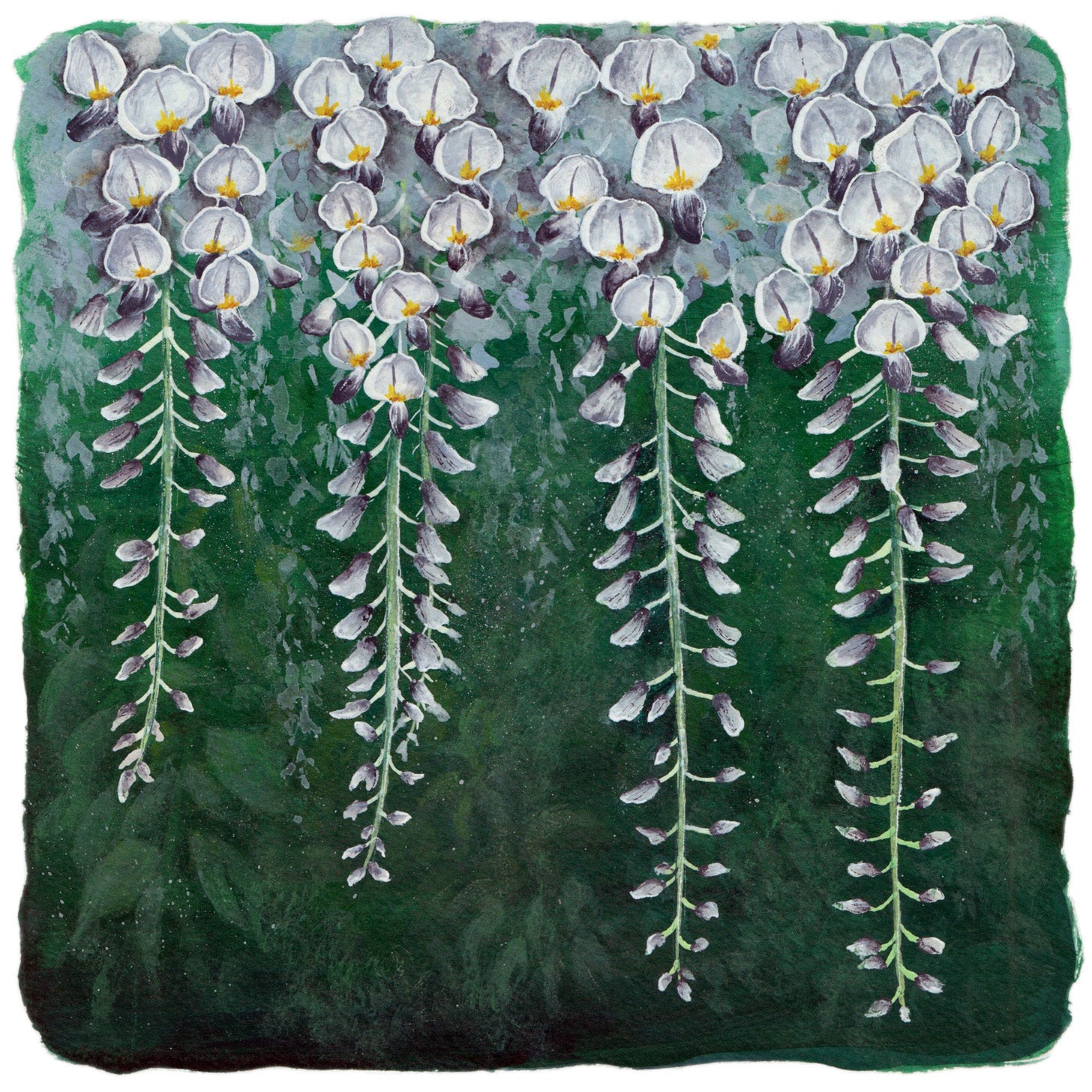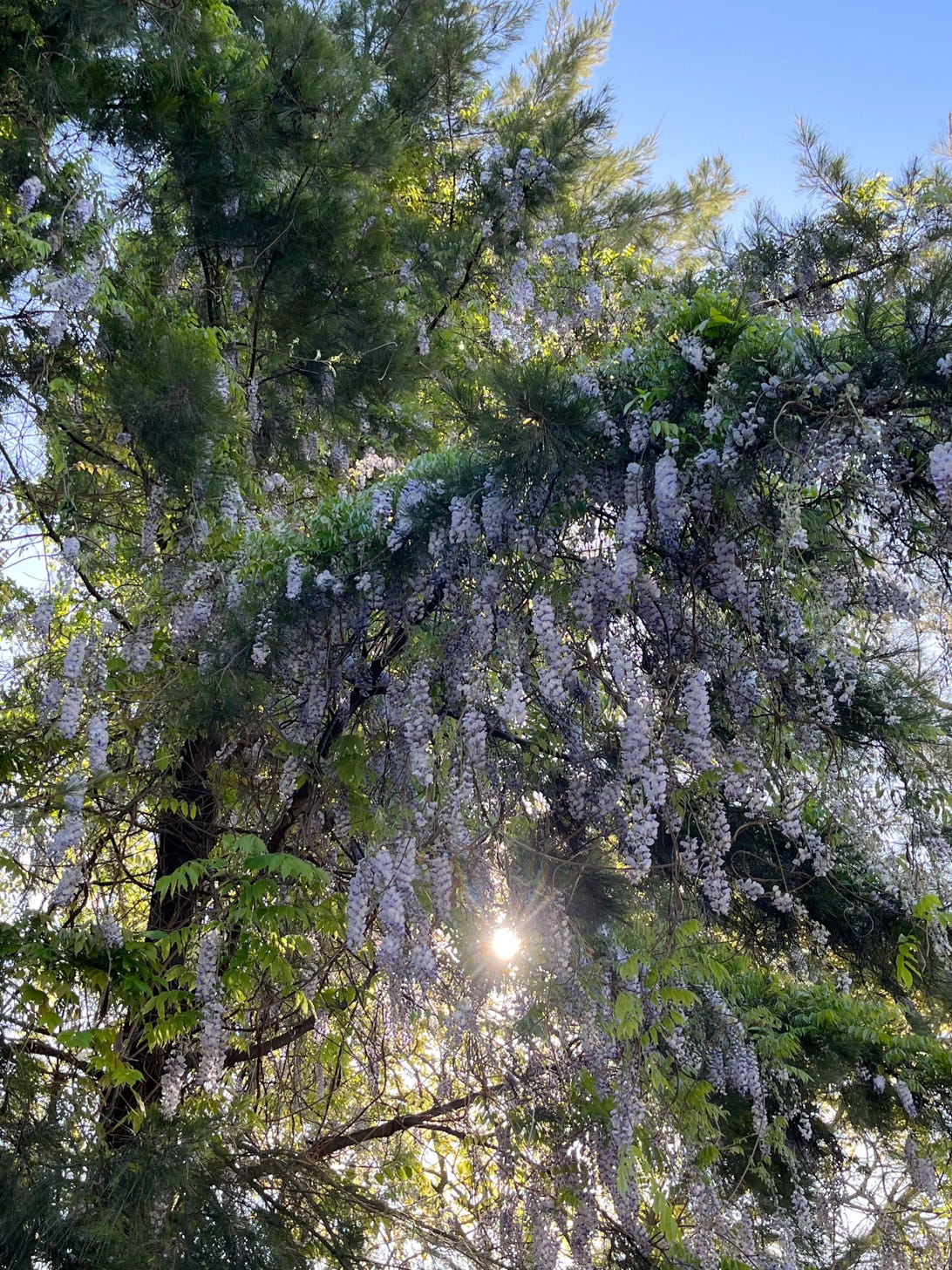A poem for spring
On letting the forest find us 🌳
“The forest breathes. Listen. It answers, I have made this place around you.”
— David Wagoner
Friends, last week I invited you to help me bring our third community edition of Dandelion Seeds to life — How We Tell Time, about the rhythms in your world that let you know a new season is near.
I was originally hoping to publish it today, in time for the first day of spring, but I’ve been so inspired to create a few new illustrations to accompany your stories that I’m going to need just one more week before it’s ready.
In the meantime, I wanted to share one of the first essays I ever wrote for Dandelion Seeds. It’s about a poem I discovered that has since become one of my favorites, and while it isn’t necessarily about spring, it very much feels like it could be.
Here’s to a new season, and all of the promise it brings,
Candace
Two springs ago, when Elena was a few months old, we went through a season of stroller naps. Her last nap of the day always seemed to work best on the go, so I would buckle her in, tuck a blanket around her legs, and head out into the cool, fresh air.
It just so happened that it was also wisteria season in our neighborhood of Montevideo then, and everywhere I pointed the stroller, we’d see beautiful, blooming vines — draped across the front gates of houses, adorning wrought-iron fences and trellises. My memories of our walks at that time will forever be colored shades of lilac and lavender.
But late one afternoon, as we walked along the edge of a small park, we passed a stand of towering pine trees. When I looked up, I was surprised to see wisteria there, too.
It was growing all over one of the trees, so that it was hard to tell where the pine branches ended and the pale purple blossoms began, like garlands of tinsel wrapped around a Christmas tree. And it was all backlit by the setting sun, whose soft golden rays made the scene feel like a painting.
As I stood there, I thought of a poem I’d recently discovered, via the wonderful Poetry Unbound podcast — “Lost,” by David Wagoner, which he based on the teachings of Native American elders in the Pacific Northwest:
Stand still. The trees ahead and bushes beside you
Are not lost. Wherever you are is called Here,
And you must treat it as a powerful stranger,
Must ask permission to know it and be known.
The forest breathes. Listen. It answers,
I have made this place around you.
If you leave it, you may come back again, saying Here.
No two trees are the same to Raven.
No two branches are the same to Wren.
If what a tree or a bush does is lost on you,
You are surely lost. Stand still. The forest knows
Where you are. You must let it find you.
In the early days after Elena was born, I often felt a little lost and out of my depth — figuring out when she should nap; trying to fix 4am wakings; wondering how to still be a good friend, sister, daughter, wife, when being a mom felt all-consuming.
But that afternoon, the wisteria winding its way through the pines was not lost on me, and that felt like something.
And just maybe, it was everything.






This one line: "My memories of our walks at that time will forever be colored shades of lilac and lavender."
Forever. Shaded. I teared up when I read that line and I stop to pause.
"Why do those two words particularly cause such a pause?"
Because Life moves on and memories are built around our senses, aren't they?
Every season brings its own sensory particulars.
And, seasons of our soul bring their own emotional particulars.
The season your describing had both. Being a new mom brought deep emotions, I imagine, if not a forest of emotions. I feel your emotional journey as you write about it here.
Some seasons of my own soul's journey are colored shades of grey, midnight blue, and raven black. Others are colored shades of yellow, burnt orange, and vibrant orchid.
Once again, you have painted a visual feast for us. I will be reflecting on this one question: What are the colored shades of my current season?
Thank you, Beautiful Soul
We have much in common!
I, too, am a Poetry Unbound fan; and like you I head into the natural world for so many good things. And today your essay took me back to the season, long ago for me now, of new-motherhood and all the emotional wonder and turmoil of those early days. So thank you. Thank you.